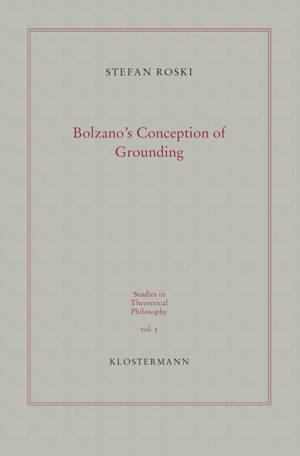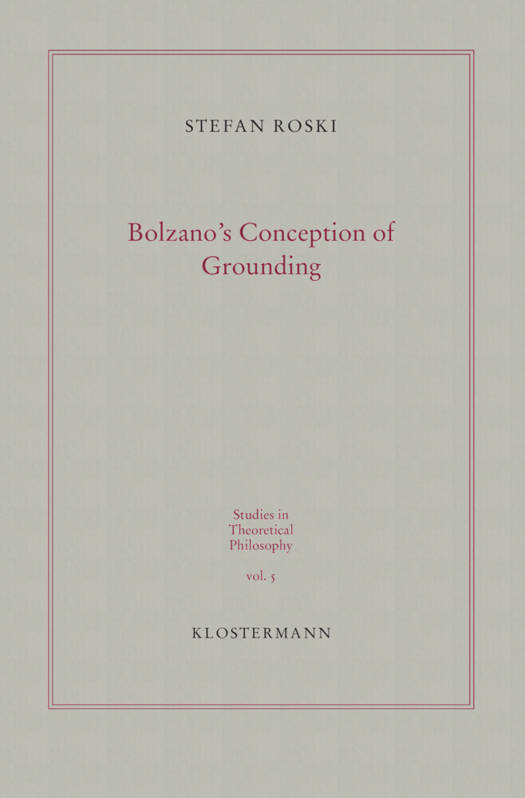
Je cadeautjes zeker op tijd in huis hebben voor de feestdagen? Kom langs in onze winkels en vind het perfecte geschenk!
- Afhalen na 1 uur in een winkel met voorraad
- Gratis thuislevering in België vanaf € 30
- Ruim aanbod met 7 miljoen producten
Je cadeautjes zeker op tijd in huis hebben voor de feestdagen? Kom langs in onze winkels en vind het perfecte geschenk!
- Afhalen na 1 uur in een winkel met voorraad
- Gratis thuislevering in België vanaf € 30
- Ruim aanbod met 7 miljoen producten
Zoeken
Omschrijving
Not all truths are on a par. The realm of truths is structured: some propositions are only true because others are. The relation that endows the realm of truths with this structure is often called grounding. Grounding has achieved much attention in 21st century metaphysics, but the topic is arguably as old as philosophy itself. This becomes apparent when investigating the works of the 19th-century philosopher Bernard Bolzano, who developed what is perhaps the first comprehensive theory of grounding, drawing on a rich tradition that goes back to Aristotle's Posterior Analytics. Roski's book provides, for the first time, a comprehensive study of Bolzano's theory of grounding in its entirety, paying more attention than previous studies to the interaction between grounding and the consequence-relation of deducibility.
Specificaties
Betrokkenen
- Auteur(s):
- Uitgeverij:
Inhoud
- Aantal bladzijden:
- 270
- Taal:
- Engels
- Reeks:
- Reeksnummer:
- nr. 5
Eigenschappen
- Productcode (EAN):
- 9783465039716
- Uitvoering:
- Paperback
- Afmetingen:
- 154 mm x 238 mm
- Gewicht:
- 414 g

Alleen bij Standaard Boekhandel
+ 116 punten op je klantenkaart van Standaard Boekhandel
Beoordelingen
We publiceren alleen reviews die voldoen aan de voorwaarden voor reviews. Bekijk onze voorwaarden voor reviews.









